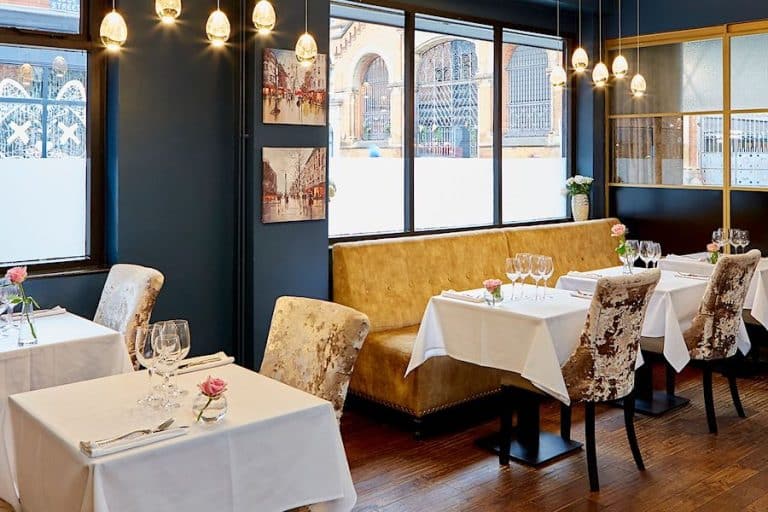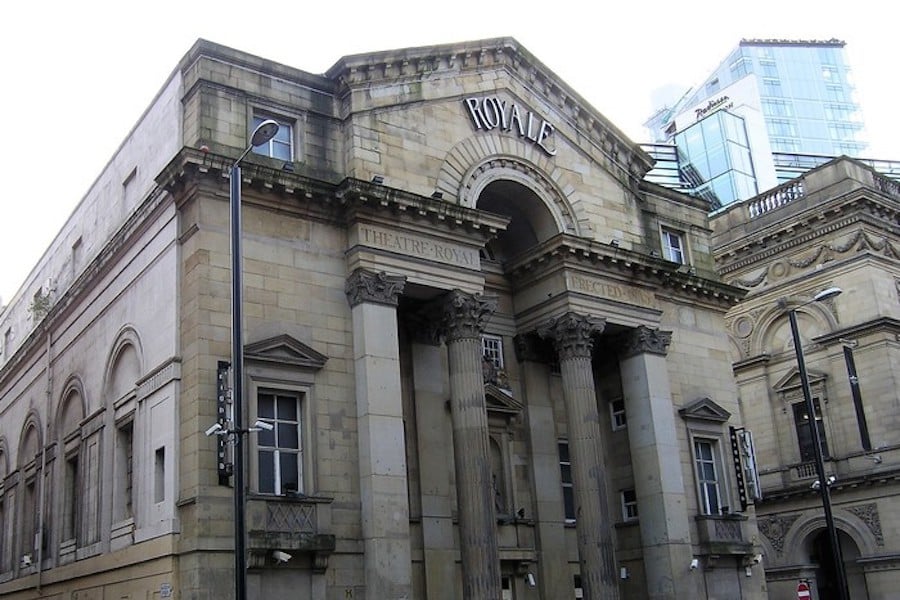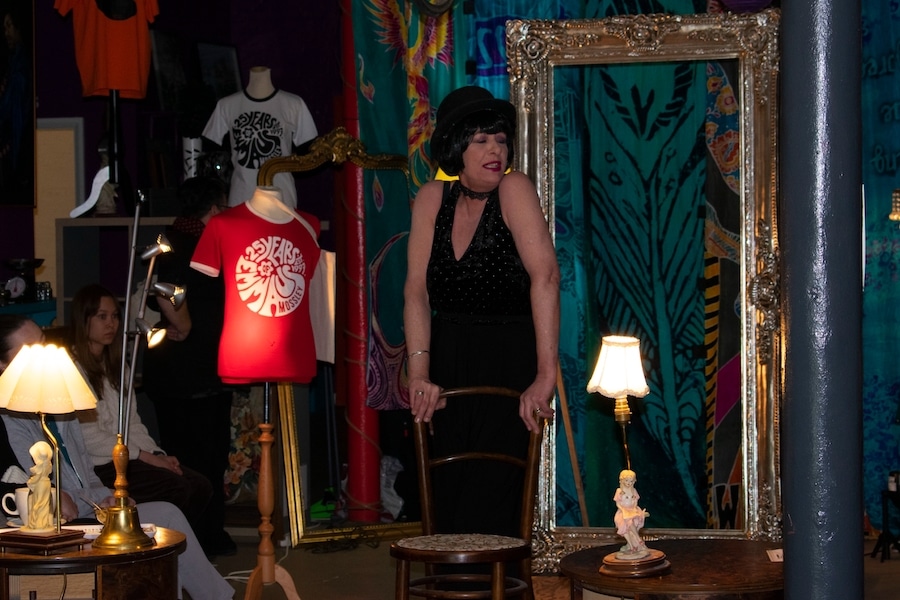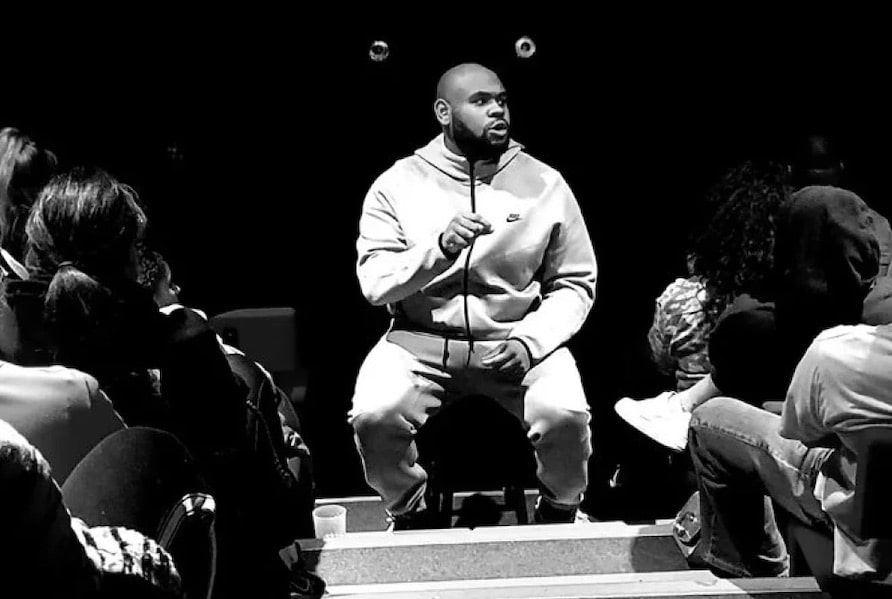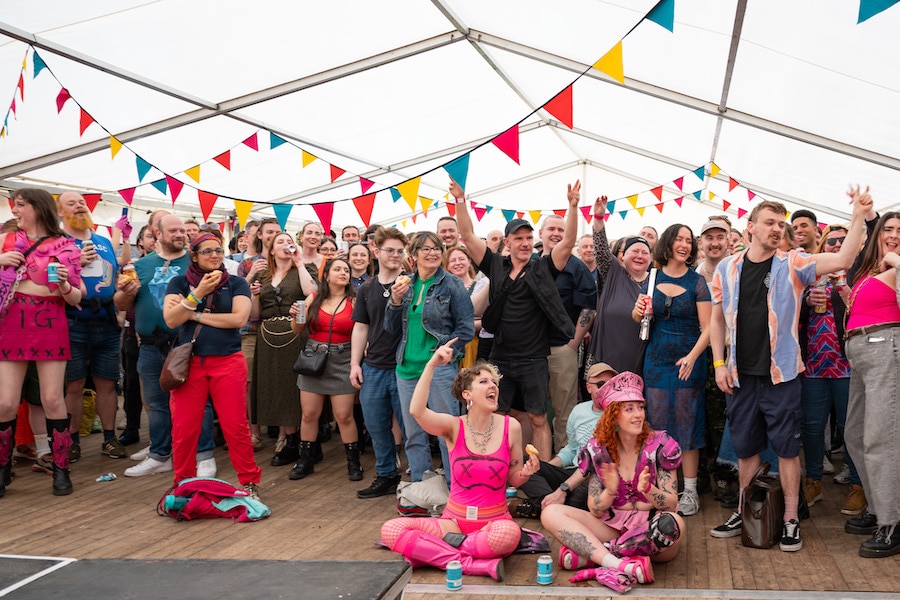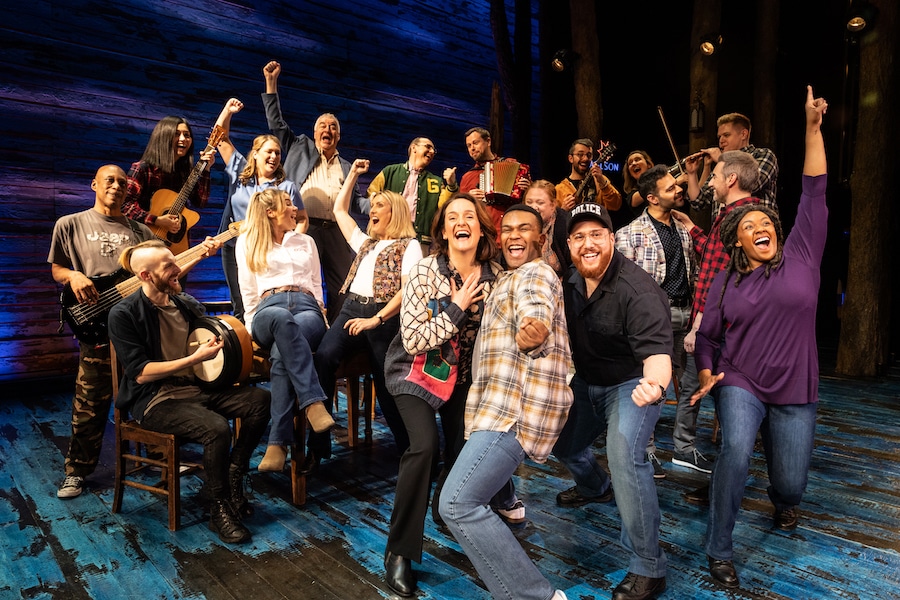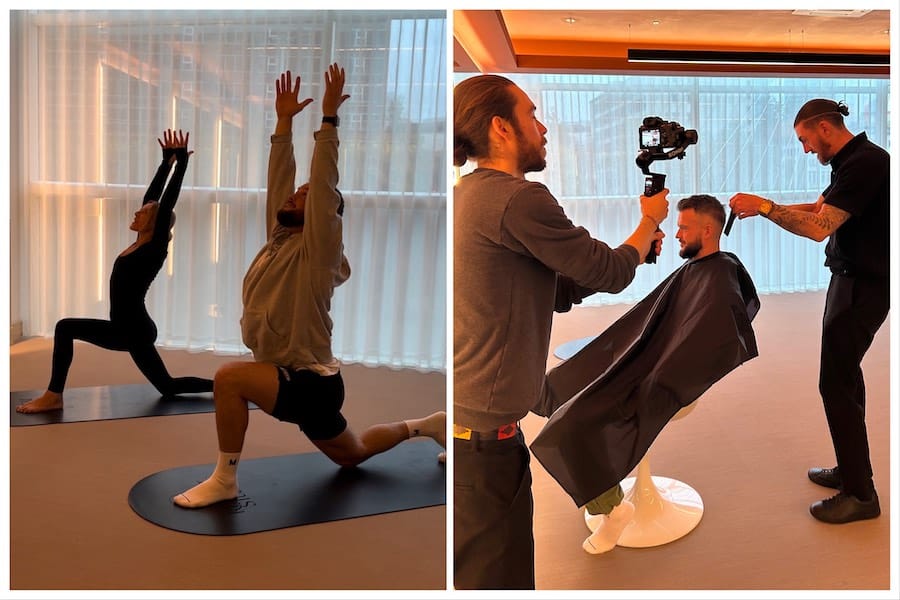These Poynton parents are fighting to help children with a rare fatal disease
- Written by Louise Rhind-Tutt
- Last updated 3 years ago
- Charity, Community, Health & Wellbeing, People
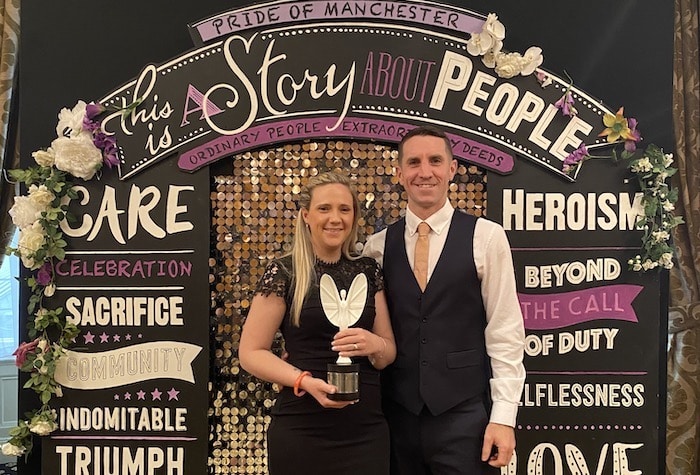
Amelia Carroll, eight, and her older brother Ollie, 10, from Poynton, Cheshire, were diagnosed with the neurodegenerative condition Batten Disease in 2015.
Batten is a rare, incurable and fatal disease with a life expectancy of six to twelve years. Over time, the disease robs children of their speech, mobility, eyesight and ability to swallow, whilst causing uncontrollable seizures and movement disorders.
Eventually, children with Batten disease become blind, tube fed, completely dependent on others for all their needs, and unable to communicate.
Parents Mike and Lucy Caroll have spent five years battling on behalf of their two sick children, as well as raising money to help others facing the same plight – and recently received a Special Recognition Award at the Pride of Manchester Awards for their efforts.
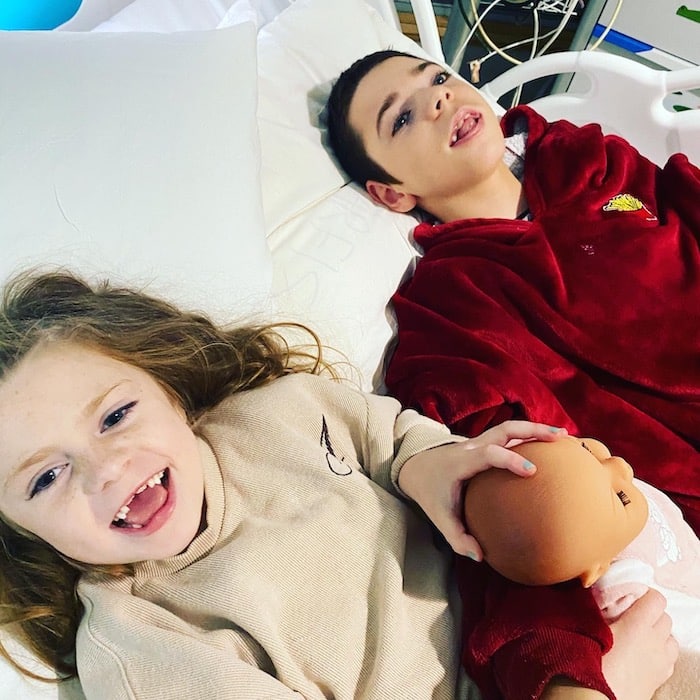
When Ollie was three-and-a-half years old, in the bath, he had a seizure. When they arrived at the hospital, a neurologist told them Ollie had Batten Disease, and only had a few years to live.
“I’ll never forget seeing Ollie sat on his dad’s knee, wiping the tears from his own dad’s cheeks,” said Lucy in a video interview recorded for the Pride of Manchester Awards.
Then, they got the devastating news that their daughter Amelia, who is now eight, also had Batten Disease.
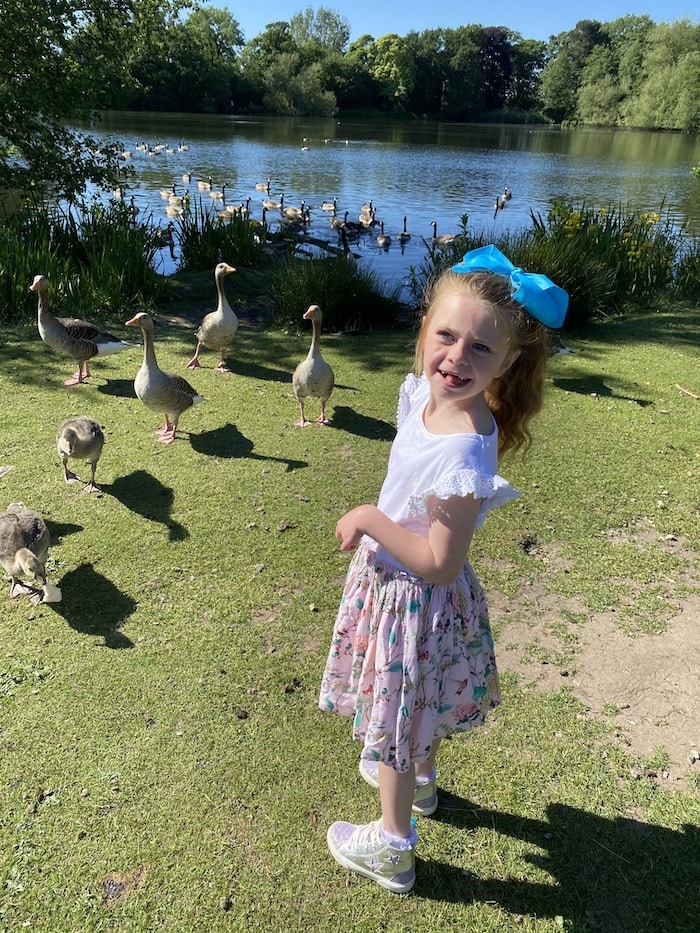
“Hearing it the second time was even worse than the first time, because we’d done the research and we knew what the disease was,” said Lucy.
For almost two years Mike and Lucy, from Poynton, fought and eventually won access to ground-breaking treatment at Great Ormond Street Hospital, funded by a pharmaceutical company.
The treatment, which replaces enzymes missing from the brain of a child with Batten Disease, consists of four hour-long infusions, twice monthly.
Ollie’s condition deteriorated during the fight for the treatment, and he cannot now walk or talk and is blind.
Amelia became one of the youngest children in the UK to receive the therapy.
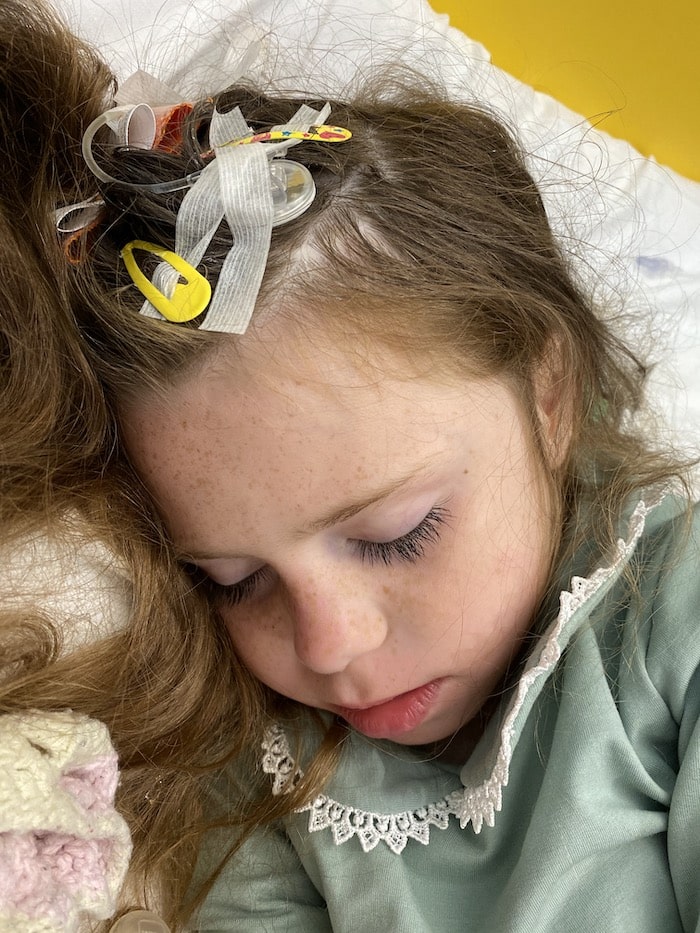
The couple are now campaigning to have the treatment made available at Manchester Children’s Hospital.
Other Batten families got behind them, and Ollie’s Army and the Batten community managed to raise £250,000 for medics at Great Ormond Street to start a new clinical trial to help save the eyesight of patients, including Amelia – but they now need to raise funds for Amelia to get to London to access the treatment.
“When you look at Amelia now, who started the treatment, she can still walk and talk and eat,” said Mike in the video interview.
“But the one thing the treatment doesn’t do is it doesn’t save the eyesight.”
Lucy describes watching Ollie’s deterioration as “absolutely horrendous”, and now “to know that he can no longer see, that his world is dark… it’s awful.”
There is now a new drug available which will help children with their sight, and Mike and Lucy along with the Batten community are fighting for other children to have this.
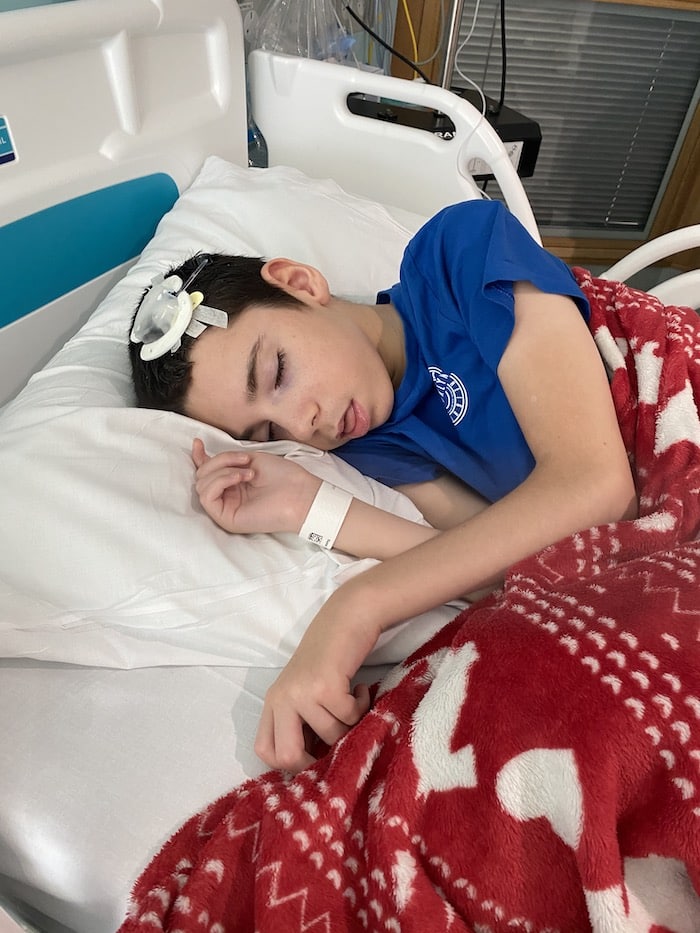
“We basically set up Ollie’s Army to help keep family and friends informed about what was going on with Ollie and Amelia,” said Lucy.
“But now we’ve been able to use Ollie’s Army for fundraising and awareness, and obviously at the moment we are fighting to save Amelia’s eyesight and other children with Batten Disease.”
In May, the couple were surprised to see Sue Johnston OBE arrive in their back garden to present them with the award.
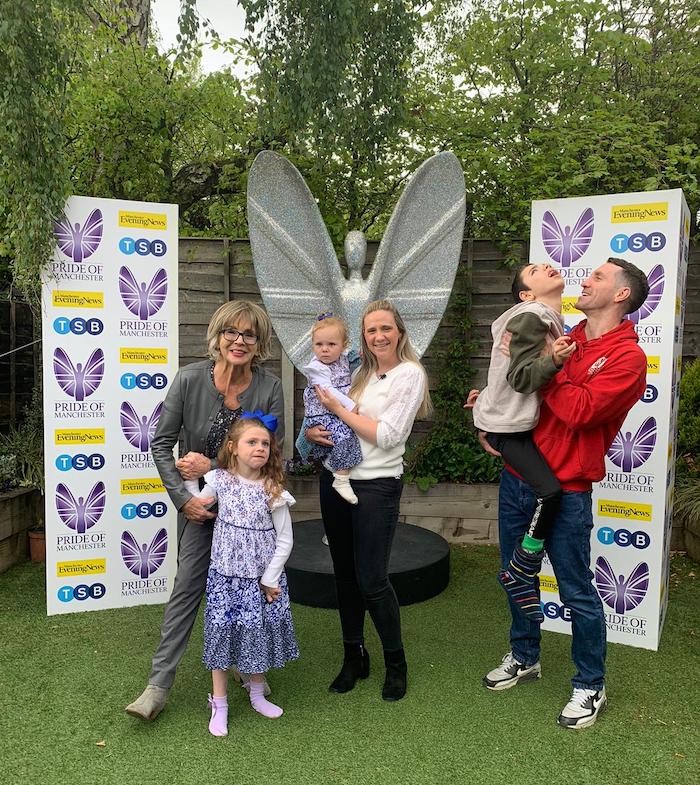
“We were in total shock to win this award but it was an honour to receive and be a part of such a special day and be given the opportunity to raise even more awareness of this ultra rare disease,” said the couple.
“If we can get this treatment started, it could save other children’s eyesight, and give them a better quality of life.”
To find out more about Ollie’s Army, click here: olliesarmy.co.uk. To donate, click here: justgiving.com.
- This article was last updated 3 years ago.
- It was first published on 23 August 2021 and is subject to be updated from time to time. Please refresh or return to see the latest version.
Did we miss something? Let us know: [email protected]
Want to be the first to receive all the latest news stories, what’s on and events from the heart of Manchester? Sign up here.
Manchester is a successful city, but many people suffer. I Love Manchester helps raise awareness and funds to help improve the lives and prospects of people across Greater Manchester – and we can’t do it without your help. So please support us with what you can so we can continue to spread the love. Thank you in advance!
An email you’ll love. Subscribe to our newsletter to get the latest news stories delivered direct to your inbox.
Got a story worth sharing?
What’s the story? We are all ears when it comes to positive news and inspiring stories. You can send story ideas to [email protected]
While we can’t guarantee to publish everything, we will always consider any enquiry or idea that promotes:
- Independent new openings
- Human interest
- Not-for-profit organisations
- Community Interest Companies (CiCs) and projects
- Charities and charitable initiatives
- Affordability and offers saving people over 20%
For anything else, don’t hesitate to get in touch with us about advertorials (from £350+VAT) and advertising opportunities: [email protected]
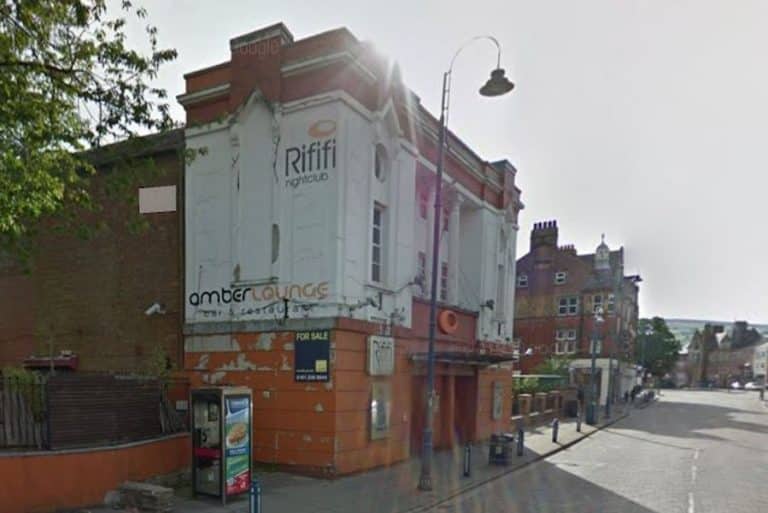
Old nightclub at the heart of ‘Staly Vegas’ could be transformed into new food hall
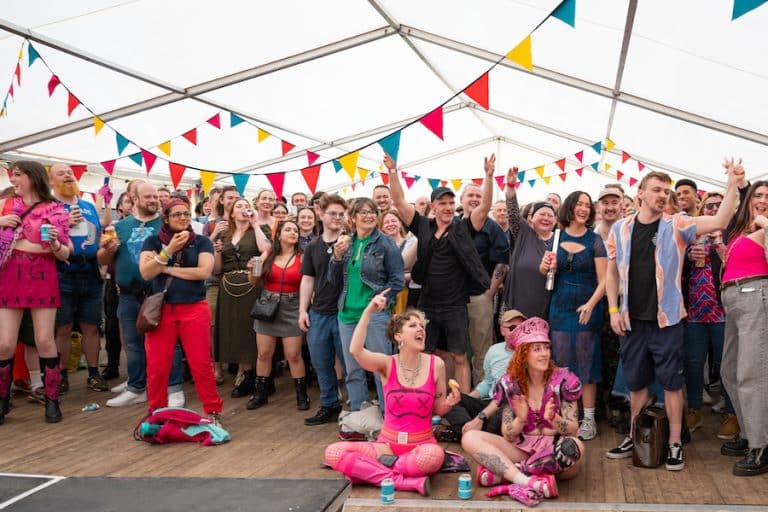
How Sounds from the Other City became the UK’s most unforgettable independent festival
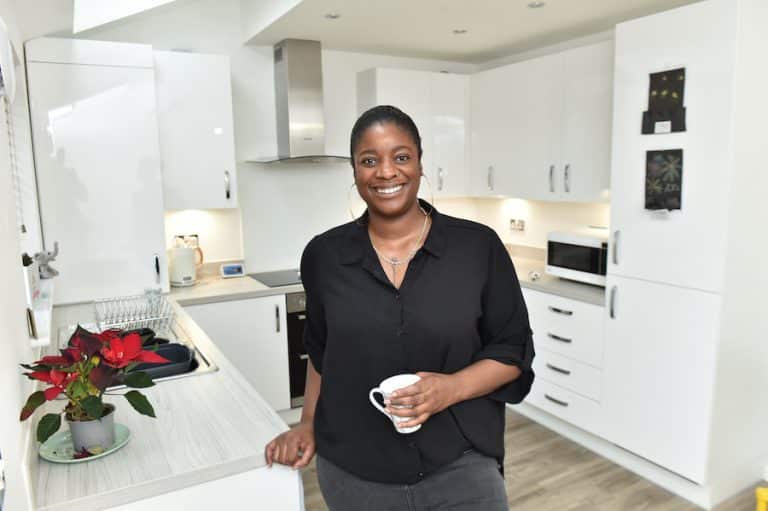
The shared ownership scheme that gave Fiona the family home she always wanted

How shared ownership can get you on the property ladder in 2025

Review: Strictly Come Dancing at the AO Arena is ‘joyous, slick and strictly brilliant’
